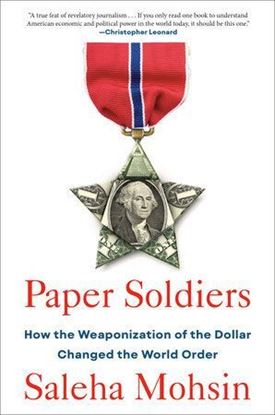

SOURCE CODE
Everyone is programmed a little differently, and Bill Gates' unique insight led to business triumphs that are now widely known: the twenty-year-old who dropped out of Harvard to start a software company that became an industry giant and changed the way the world works and lives; the billionaire many times over who turned his attention to philanthropic pursuits to address climate change, global health, and U.S. education.
Source Code is not about Microsoft or the Gates Foundation or the future of technology. It’s the human, personal story of how Bill Gates became who he is today: his childhood, his early passions and pursuits. It’s the story of his principled grandmother and ambitious parents, his first deep friendships and the sudden death of his best friend; of his struggles to fit in and his discovery of a world of coding and computers in the dawn of a new era; of embarking in his early teens on a path that took him from midnight escapades at a nearby computer center to his college dorm room, where he sparked a revolution that would change the world.
Bill Gates tells this, his own story, for the first time: wise, warm, revealing, it’s a fascinating portrait of an American life.
1,995
PAPER SOLDIERS
In 1995, Treasury Secretary Robert Rubin re-defined the next thirty years of currency policy with the mantra, “A strong dollar is in America’s interest.” That mantra held, ushering in exceptional prosperity and cheap foreign goods, but the strong dollar policy also played a role in the devastating hollowing out of America’s manufacturing sector. Meanwhile, abroad, the United States increasingly turned to the dollar as a weapon of war. In Paper Soldiers, Saleha Mohsin reveals how the Treasury Department has shaped U.S. policy at home and overseas by wielding the American dollar as a weapon—and what that means in a new age of crisis.
For decades, America has preferred its currency superpower-strong, the basis of a “strong dollar” policy that attracted foreign investors and pleased consumers. Drawing on Mohsin’s unparalleled access to current and former Treasury officials like Robert Rubin, Steven Mnuchin, and Janet Yellen, Paper Soldiers traces that policy’s intended and unintended consequences, including the rise of populist sentiment and trade war with China—culminating in an unprecedented attack on the dollar’s pristine status during the Trump presidency—and connects the dollar’s weaponization from 9/11 to the deployment of crippling financial sanctions against Russia. Ultimately, Mohsin argues that, untethered from many of the economic assumptions of the last generation, the power and influence of the American dollar is now at stake.
With first-hand reporting and fresh analysis that illustrates the vast, often unappreciated power that the Treasury Department wields at home and abroad, Paper Soldiers tells the inside story of how we really got here—and the future not only of the almighty dollar, but the nation’s teetering role as a democratic superpower.
1,995
SMART, NOT LOUD
When Jessica Chen entered the workforce, she felt like everything she had been taught growing up in a Quiet Culture household—where deference, humility, harmony, and dogged hard work were praised—failed to set her up for success in the “real world.” Her ingrained values were in direct contrast with what was actually needed to stand out in a Loud Culture workplace. The result? Feeling underappreciated, passed over for opportunities and promotions, and completely stuck.
Building on the lessons she learned as an award-winning TV news journalist, Chen—who now speaks at Fortune 100 companies and whose LinkedIn Learning courses have been watched by over 2 million people—introduces a new way of getting noticed at work, without being loud, aggressive, or boastful. In Smart, Not Loud, Chen teaches readers how they can look within, to the values they already hold, to more effectively show up.
1,995
BEACH READ (SPECIAL EDITION)
Augustus Everett is an acclaimed author of literary fiction. January Andrews writes bestselling romance. When she pens a Happily Ever After, he kills off his entire cast.
They’re polar opposites.
In fact, the only thing they have in common is that for the next three months they’re living in neighboring beach houses, broke and bogged down with writer’s block.
Then one hazy evening, one thing leads to another and they strike a deal designed to force them out of their creative ruts: Augustus will spend the summer writing something happy, and January will pen the next Great American Novel. She’ll take him on field trips worthy of any rom-com montage, and he’ll take her to interview surviving members of a backwoods death cult (obviously). Everyone will finish a book and no one will fall in love. Really.
1,995
NUCLEAR WAR
Every generation, a journalist has looked deep into the heart of the nuclear military establishment: the technologies, the safeguards, the plans, and the risks. These investigations are vital to how we understand the world we really live in—where one nuclear missile will beget one in return, and where the choreography of the world’s end requires massive decisions made on seconds’ notice with information that is only as good as the intelligence we have.
Pulitzer Prize finalist Annie Jacobsen’s Nuclear War: A Scenario explores this ticking-clock scenario, based on dozens of exclusive new interviews with military and civilian experts who have built the weapons, have been privy to the response plans, and have been responsible for those decisions should they have needed to be made. Nuclear War: A Scenario examines the handful of minutes after a nuclear missile launch. It is essential reading, and unlike any other book in its depth and urgency.
1,995
THE LIGHT WE CARRY
There may be no tidy solutions or pithy answers to life’s big challenges, but Michelle Obama believes that we can all locate and lean on a set of tools to help us better navigate change and remain steady within flux. In The Light We Carry, she opens a frank and honest dialogue with readers, considering the questions many of us wrestle with: How do we build enduring and honest relationships? How can we discover strength and community inside our differences? What tools do we use to address feelings of self-doubt or helplessness? What do we do when it all starts to feel like too much?
Michelle Obama offers readers a series of fresh stories and insightful reflections on change, challenge, and power, including her belief that when we light up for others, we can illuminate the richness and potential of the world around us, discovering deeper truths and new pathways for progress.
1,995













